- Home
- Melody Carlson
Hidden History Page 13
Hidden History Read online
Page 13
“She shouldn’t need to,” said Alice suddenly. “I’d almost forgotten that Mark said Daisy will only grow to the size of a mid-sized dog. She’s a miniature potbellied pig. Surely, the town should have no problem with a pet of that size.”
“She’s still a pig,” said Ethel.
“She’ll only be this tall,” said Alice as she held her hands about a foot apart. “And Mark says they make excellent pets. Better than cats and dogs.”
“Mark says….” Ethel sighed dramatically. “Well, the fact is your Dr. Mark Graves doesn’t have to live in our little town. If he did, he might be singing another tune.”
What kind of a tune he would be singing was a complete mystery to Alice. She glanced at her sweater still hanging by the back door and thought of the letter tucked safely in the pocket. Would she read it again? Or answer it? Or would she simply hide it away and forget all about it? She still was not sure.
Chapter Fifteen
Saturday had been hectic, even though Mr. and Mrs. Hanley were the only guests. By evening, life had finally slowed down enough for the sisters to meet in the library to continue the reading of the journal.
“I thought the Hanleys would never stop talking,” said Jane as she flopped down in an easy chair. “They’re really nice, but that woman can go on and on.”
“No time to waste,” said Louise as she glanced at the clock on the bookshelf. “Go ahead and get started, Alice.”
Alice turned on the desk light and opened the journal to where they had left off.
March 10, 1926. I am still amazed that my father agreed to let me take the test to skip a year of high school, but I suspect his pride played into it somewhat. When Mr. Dolton and the other school officials met with my father and me, they managed to convince my father that I was an exceptionally bright student and that this was a great opportunity for me to advance myself. I could see my father sitting a bit straighter in his chair as he absorbed this information, and he even had the audacity to say that intelligence runs on his side of the family. I had to bite my tongue. The important thing remains that he signed the paper and for the time being I feel assured that I will be able to continue my schooling until graduation. Of course, I know that, at any given moment and for any reason, my father could change his mind. I only hope that he does not. I passed my exams with flying colors. Mr. Dolton gave me a new writing pen for the occasion and said he was proud of me. These were his exact words: “Daniel, if I had a son, I would want him to be just like you.” I do not think the man could have said anything to make me feel better. More than ever I want to do my best and succeed at this challenge. I must put away any distractions like fishing or dawdling or sleeping too late in order to accomplish this task and make Mr. Dolton and the others proud.
“That is wonderful,” said Louise.
“It’s kind of sad too,” said Jane. “To think that he was only sixteen and taking on such responsibilities.”
“Maybe,” said Alice. “But I think it made him happy.”
“I suppose.” Jane shook her head a bit doubtfully. “But to give up fishing.”
Alice laughed. “He only had to give it up for a short while to improve his life greatly. We all remember how much he enjoyed it while we were growing up.”
“Read more, Alice,” said Jane.
April 8, 1926. I am experiencing a mix of feelings tonight. I am not even sure how to describe them. My father came home from working in the field just before sunset. I noticed right off that he was whistling. I cannot remember hearing him whistle ever before. He smiled, actually smiled, at me when he came through the door and hung up his hat. As usual, I had supper ready. It was only a pot of stew, warmed over from last night, but my father complimented my cooking. Then he said, “But you will not have to be cooking much longer, boy.” I considered asking him why, but thought better of it since he seemed in a hurry to eat. Then he quickly cleaned up, changed his shirt and told me he was going to town.
This all seems to confirm a rumor that I heard while working at the newspaper this week. It seems that my father is courting Gladys Mulligan, a young seamstress who rents a room above the newspaper. I do not know what to think about this new development. On one hand, I feel relieved to see my father in good spirits. On the other hand, I feel this is a betrayal of my dear mother. At times like this I wish there were someone I could talk to. I walked past the spot where my mother used to sit by the fireplace, and I noticed that her shawl and Bible were missing. I am afraid my father has disposed of them. I would ask him where they went, but I do not want to risk angering him. I understand now what the expression walking on eggshells means. I feel this is how I must live my life.
“That must be Aunt Ethel’s mother,” said Jane.
Louise nodded. “Would you like to read some more, Alice?”
“Yes, I’d love to. I must admit I’m curious,” said Alice.
May 26, 1926. I have been so busy with preparing for my final exams that I have neglected to write in my journal lately, but I cannot neglect to write tonight. My father married Gladys Mulligan yesterday.
I thought something was odd when he came into the house right after morning chores, showered and shaved and put on a clean shirt.
“Are you going somewhere special?” I asked when I heard him whistling.
“Getting myself hitched,” he said in a matter-of-fact way, as if he went off and got married every day. I was shocked but told him “congratulations” and shook his hand. Then he said, “Take care of things, son” and took off. I was not very surprised when he did not return home last night, but I still could not convince myself that he had actually gotten married. Today when I came home from school and my work at the newspaper, however, I found Gladys Mulligan making a cherry pie in my mother’s kitchen. She smiled at me as if this were a perfectly normal occurrence, and then proceeded to tell me she was my new mother. I cannot even remember what I said to her, but I did excuse myself to the barn. I went into the hayloft and sat for an hour or so. It is not that I expected my father to invite me to witness his marriage, but nevertheless it does hurt to be shoved off to the side. Somehow I managed to soothe my wounded feelings and come into the house when my father called me for supper, and I did congratulate them both on their marriage, but as soon as I finished my supper of overdone meat and underdone biscuits, I excused myself to my room, saying I needed to study. “You’ll have more time for the books now,” my father said to me. Then he turned to his young bride and said, “Daniel is the smart one in the family. He takes after me.” I know I should have been happy to receive a compliment from my father, but it set my teeth on edge like when I take a bite of a bitter green apple.
“Oh my.” Louise shook her head.
“That was short,” said Alice. “Shall I read one more?”
“Please do,” said Jane.
June 8, 1926. Today was a very good day, although I am sad that it is the last day of school. Mr. Dolton took me aside during lunchtime to tell me that I had finished at the top of the junior class. “I know you have been working hard, Daniel,” he told me. “I thought you should know that your efforts are paying off.” I thanked him and told him that I plan to work even harder next year. Then he inquired about my home life. I had confided to him about my father’s marriage and how unsettling it had been for me. Fortunately, Mr. Dolton has been a great source of encouragement. So today I told him that I seem to be adjusting to my new circumstances. “Well, it looks as if your new step-mother has made improvements to your wardrobe,” he told me with a smile. This is true enough, for Gladys, as she allows me to call her, did sew me a fine new pair of brown corduroy trousers that reach all the way to the tops of my shoes, for which I am grateful. Now, here is what I found the most amazing about my day today. As I was leaving the school grounds, Adele Brooks called out to me. I have known Adele for years. To be truthful, I have admired her for years. She is a short and pretty girl with long blond curls and sparkling blue eyes. Adele is not only pretty, she is very kind
hearted and smart too. She may be the only student who has never once made fun of or laughed at me over the years. “It does not seem fair that you get to be a senior next year, Daniel,” she said as she walked along with me to the newspaper. “We have been in the same class forever, and now you are leaving me behind.” I tried to act nonchalant, as if it were not such a big deal that I had skipped a year not to mention that I was now walking down the street in her company, but the whole time my heart was pounding like a drum and my palms were sweating. I could not believe that I was actually strolling down Main Street with the lovely Adele Brooks—
“That is so sweet,” said Jane.
“Jane,” said Louise.
“Oh, sorry,” said Jane.
Alice chuckled and then continued.
As we walked through town, I glanced around to see if anyone was watching the two of us together. Although I still do not know for the life of me if that would have been good or bad. The truth is I have never before felt the way I felt today. I am not sure how to begin to describe it, but I think it was akin to being lightheaded and smitten and dumbstruck all at once. I suppose it could be what I have heard the girls call spring fever, or maybe I am pixilated, but the trouble is I cannot get Adele Brooks out of my mind. Still, it is not such a bad problem, not really.
Alice closed the book and smiled.
“How perfectly adorable,” said Jane.
“It is such a relief to know that Father’s life was not completely gloomy,” said Louise.
“That little Adele sounds like a real heartthrob,” said Jane.
“Imagine Father smitten like that,” said Louise.
“Oh, everyone should be smitten once in a while,” said Jane. “Or at least once in a lifetime. Father was lucky. It seems he was smitten twice.”
Alice wondered about that as she prepared for bed. She did not fully appreciate being “smitten.” Not that she could remember it so very well, but what she did remember were feelings of uncertainty and insecurity and that constant nagging concern and wondering if he would ever call or write or whatever. She remembered feeling as if she were hanging by a thread and worrying if he loved her as much as she loved him. And in the end, she had never really known.
She glanced at the drawer on her bedside table, the place where she had put the letter from Mark Graves beneath a stack of handkerchiefs. She thought about how she would answer his letter. She would tell him politely that she too had enjoyed seeing him again and that she was so very glad that he had finally discovered God. But she was not sure what to say after that.
She took out her stationery and began to write. As she expected, the first two lines were easy, but then…. She sat and stared at the pale lavender paper trying to find a way to express her feelings. Finally she set the letter aside and went to bed. Perhaps she would find the words in the morning.
Chapter Sixteen
After church, Alice invited several of the ANGELs to gather at Sylvia’s Buttons to work on the quilting project. “I’m afraid it’s the only way we’ll ever get this finished on time for the Fall Festival,” she told Ashley and Sarah. “Ms. Songer has promised to help us finish the piecing today.”
“Do you want us to call the other girls?” asked Ashley.
“That would be wonderful,” said Alice.
As it turned out, all but a couple of the ANGELs showed up, and by five o’clock they were nearly finished piecing the quilt together.
“You girls are amazing,” said Sylvia. “I’ve seen grown women who don’t work as quickly.”
The girls all beamed at her praise.
“It’s for a good cause,” said Linda Farr. “It’s going to be auctioned for Helping Hands.”
“I know.” Sylvia made the secret sign. “Alice has made me an honorary ANGEL and I promise not to reveal the creators of this splendid quilt.”
“It’s so pretty,” said Kate Waller as she ran her hand over the rich fall colors. “I think Jenny was right, and it should sell for thousands of dollars.”
Alice laughed. “Well, I hope we can get it done in time for the Fall Festival. We have two Wednesdays left to get it quilted.”
“May I help?” asked Sylvia.
“Of course. We’d love it,” said Alice.
Alice stopped by to check on Vera on her way home. She had noticed that the Humberts had not been in church and it worried her.
Fred met her at the door. “Vera’s under the weather again, Alice,” he told her in a hushed voice. “She’s asleep right now.”
Alice could see the frustration on his face, as well as the messy house behind him. “What can I do to help, Fred?”
Fred ran his hand through his thinning hair and sighed. “I just wish she’d get well. I don’t get it. Vera has always been the healthiest person I know.”
“I know, Fred. None of the tests have been a bit helpful. I realize how frustrating this is for her, and you too. If there’s anything I can do—”
“You’ve been doing plenty, Alice. We really appreciate it, but don’t wear yourself out. You’ve got a lot on your plate with your job and the inn.”
“But I love Vera, Fred. I want to be here for her.”
He nodded. “She appreciates it. We both do. Thanks for checking on her, Alice. I’ll tell her you were here.”
“And I’ll call later.”
Once again, Alice prayed for Vera as she drove the short distance home. Even as she prayed, she wondered why the doctors had not been able to discover the cause of Vera’s illness. “Please, give us patience,” she finally prayed. “Help us to trust Your will, Heavenly Father. Help us to trust that You’re holding Vera and all her troubles in Your hand. And comfort her now. Show her that You are taking care of her no matter how dark it may seem. Amen.”
Sunday evening, with the weekend guests checked out, Alice and her sisters looked forward to some quiet time together. After a light dinner, they gathered in the library, and Alice began to read from their father’s journal again.
July 29, 1926. I try to write in my journal at least once a month, but it has become more challenging during the summertime. I assumed I would have more free time with school out. I imagined myself reading books for pleasure, fishing and writing in my journal, but between farm chores and my job at the newspaper, I ofen fall into bed exhausted before ten o’clock. Naturally, my father takes full advantage of my “strong back” as he likes to put it. I am fairly certain that this is the only way my father values me, as a farm hand, a strong back, a pair of willing hands, a virtual slave. He has said numerous times that I should quit school altogether and work the farm “like a man.” He has even hinted that all this—sorry little farm that it is—might one day be mine, but I feel certain that I do not want it. Other than the river and the fish, I would not give a hill of beans for it. Of course, I would never dream of saying such a thing to him. I am not daft. Besides, my father’s wife (I am still unable to call her my stepmother) has been hinting that she is “with child.” This has made me realize that my father will soon be having a new family, perhaps a new son who will want to farm with his father. Perhaps they will enjoy a good relationship. My father does seem to be mellowing of late, but it is hard to tell how long his mood will last. I could not help but hear him and Gladys arguing last night as I was drifting off to sleep. That is why I have moved my bedroom from the house to the barn, taking up residence in the hayloft. Other than mice and other varmints, it is much more peaceful out here. But before I cease my writing for the night, blow out the lantern and drift off to sleep, I must say my summer has not been all hard work and disappointment. No, there have been some very nice highlights along the way. 1) Having an occasional soda with Adele. 2) Writing a couple of articles—not obituaries—for the newspaper. 3) Visiting with Mr. Dolton and asking him how and why he is so certain there is a God. I have discovered he is not a bit intimidated by my questioning and lets me speak my mind. I appreciate this greatly. 4) I am also looking forward to a dance to be held in two weeks. Adele to
ld me that she plans to attend with some of her girlfriends. I doubt that I shall have the nerve to ask her to dance, but at least I shall go and hope that she does not dance with anyone else.
Alice paused and looked at her sisters. They nodded their unspoken agreement that she should go on.
August 12, 1926. I went to the dance last night. It was held in the town square with oriental lanterns strung all around. The girls wore pretty dresses in pastel colors and the fellows were scrubbed clean with straw hats and bowties. My plan was to remain on the edge of this affair, a safe distance for an outcast. Oh, I do not really think of myself as an outcast, but I know that I do not fit in. People know that I am one of those Howard kids from that rundown little farm on Farley Road. I suspect some even feel sorry for me. I suppose that might hurt as much as anything. So my plan was to remain as invisible as possible, to blend into the trunk of the tree that was supporting my tired back. I managed to do this for about an hour. During this time, I kept my eye on Adele, and I know she was watching me, too. So it came as a surprise when she accepted invitations to dance from a couple of our classmates. Most surprising was that she willingly danced with Leon Stevens, especially since we both agree that Leon is not the nicest person. The truth is that Leon is a bully. I speak from experience. More disheartening was that Adele did not dance with Leon once, but three times. I was so exasperated that I was preparing to leave when the bandleader announced that the next song would be a ladies’ choice. Out of curiosity, I stuck around, and the next thing I knew Adele was tapping me on the shoulder. Embarrassed, I admitted to her that I do not know how to dance. She said she would help me. I only stepped on her toes a couple of times, and she did not complain, although she did admit to being vexed at me for not asking her to dance. “But I will forgive you if you can assure me that it is only because you are shy and not much of a dancer.” I told her that was exactly right and she absolved me of all offenses. Then I asked her why on earth she wanted to dance with someone like Leon. “I thought that might make you jealous,” she retorted. I did not tell her that it had worked, but I did manage to ask her to dance a few more times before the evening ended. I noticed some of the boys offering to walk various girls home, but this would take more nerve than I could summon. I hope Adele understood. As I walked home by myself, in the light of the half moon, I felt incredibly light-hearted and happy and unexplainably hopeful. At one point I paused and looked up at the star-studded sky and thought, maybe, just maybe I have been completely wrong. Maybe there is a God after all. So, standing there on Farley Road, I said something that resembled a prayer. I said, “God, if you are truly there, and truly real, please show yourself to me. I do not actually want to be an atheist. It just seemed my only recourse a few years ago when I was so disappointed by life in general.” That was about all I said, and I am not sure anyone would regard that as an actual prayer. I am still not sure about it myself, but I figure if God is real, he ought to be willing to show himself to me. Time will tell.

 The Happy Camper
The Happy Camper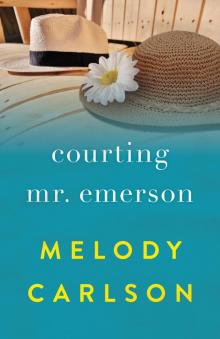 Courting Mr. Emerson
Courting Mr. Emerson The Christmas Swap
The Christmas Swap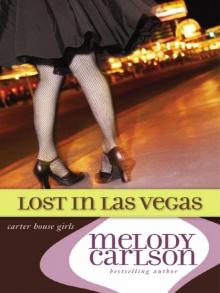 Lost in Las Vegas
Lost in Las Vegas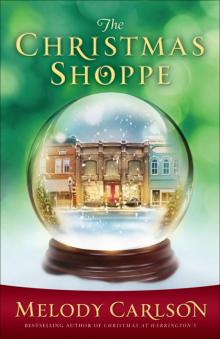 The Christmas Shoppe
The Christmas Shoppe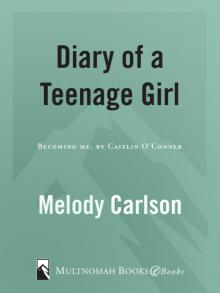 Becoming Me
Becoming Me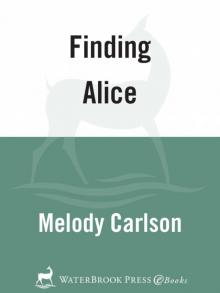 Finding Alice
Finding Alice Payback
Payback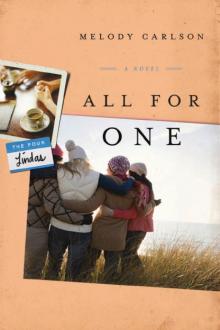 All for One
All for One Under a Summer Sky--A Savannah Romance
Under a Summer Sky--A Savannah Romance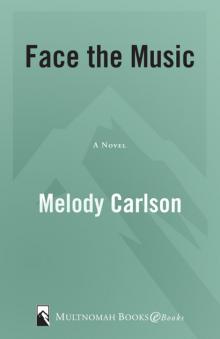 Face the Music
Face the Music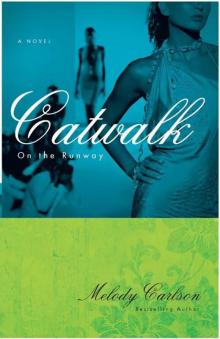 Catwalk
Catwalk Never Been Kissed
Never Been Kissed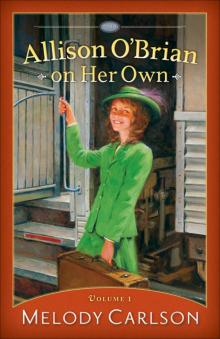 Allison O'Brian on Her Own
Allison O'Brian on Her Own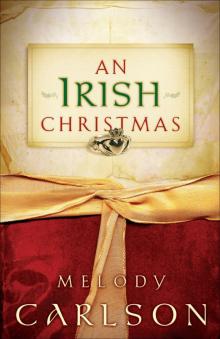 An Irish Christmas
An Irish Christmas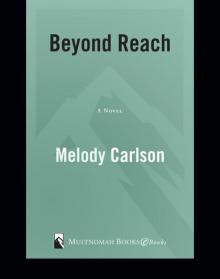 Beyond Reach
Beyond Reach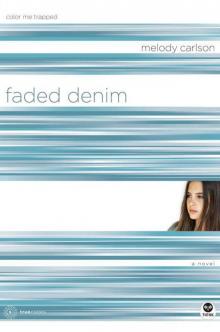 Faded Denim: Color Me Trapped
Faded Denim: Color Me Trapped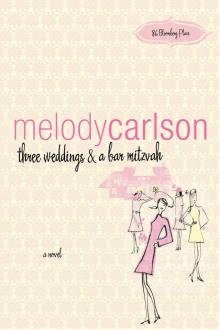 Three Weddings and a Bar Mitzvah
Three Weddings and a Bar Mitzvah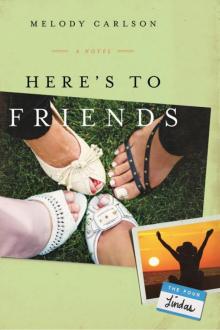 Here's to Friends
Here's to Friends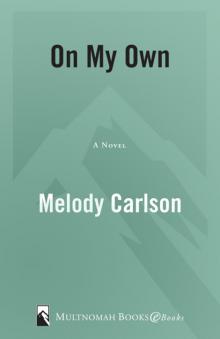 On My Own
On My Own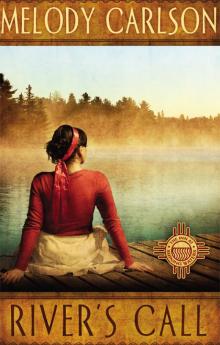 River's Call
River's Call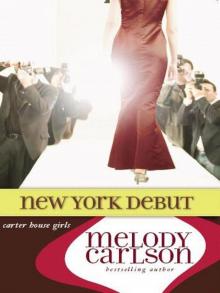 New York Debut
New York Debut Homeward
Homeward Love Finds You in Sisters, Oregon
Love Finds You in Sisters, Oregon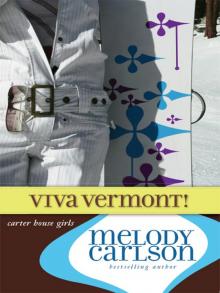 Viva Vermont!
Viva Vermont! Notes from a Spinning Planet—Ireland
Notes from a Spinning Planet—Ireland Harsh Pink with Bonus Content
Harsh Pink with Bonus Content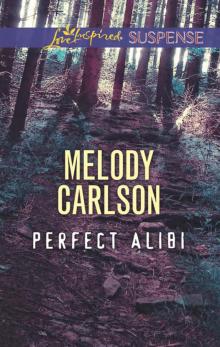 Perfect Alibi
Perfect Alibi The Christmas Pony
The Christmas Pony All Summer Long
All Summer Long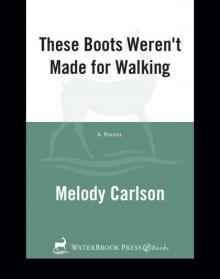 These Boots Weren't Made for Walking
These Boots Weren't Made for Walking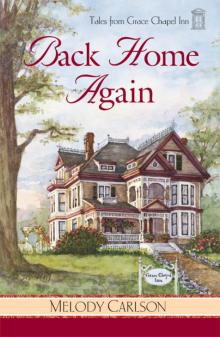 Back Home Again
Back Home Again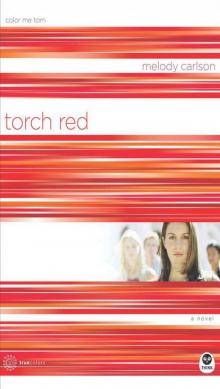 Torch Red: Color Me Torn with Bonus Content
Torch Red: Color Me Torn with Bonus Content Bitter Rose
Bitter Rose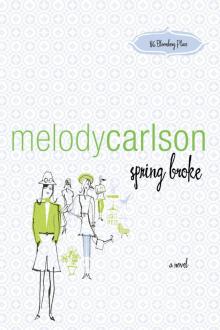 Spring Broke
Spring Broke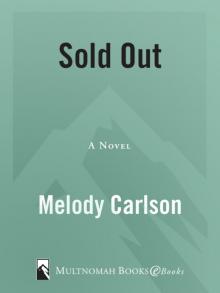 Sold Out
Sold Out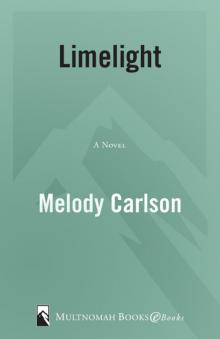 LimeLight
LimeLight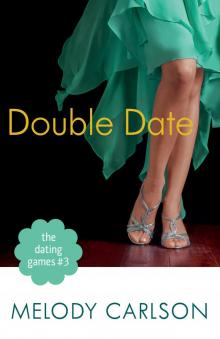 Double Date
Double Date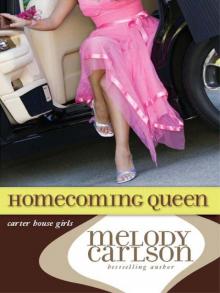 Homecoming Queen
Homecoming Queen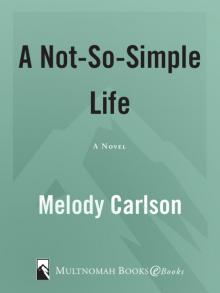 A Not-So-Simple Life
A Not-So-Simple Life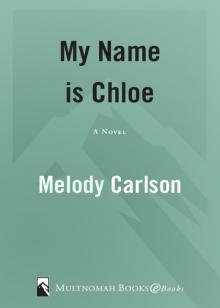 My Name Is Chloe
My Name Is Chloe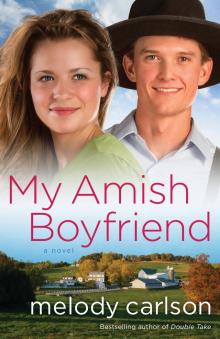 My Amish Boyfriend
My Amish Boyfriend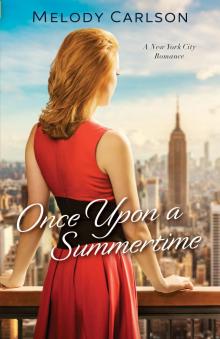 Once Upon a Summertime
Once Upon a Summertime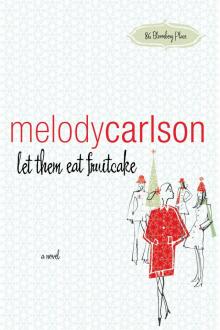 Let Them Eat Fruitcake
Let Them Eat Fruitcake Deep Green: Color Me Jealous with Bonus Content
Deep Green: Color Me Jealous with Bonus Content The Joy of Christmas
The Joy of Christmas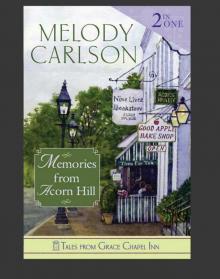 Memories from Acorn Hill
Memories from Acorn Hill Premiere
Premiere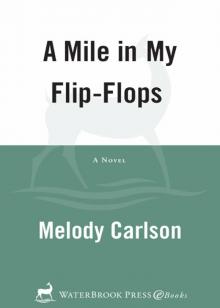 A Mile in My Flip-Flops
A Mile in My Flip-Flops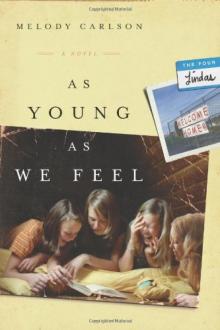 As Young As We Feel
As Young As We Feel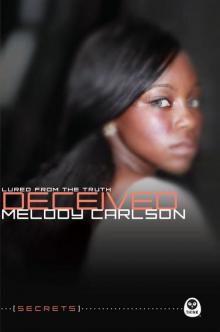 Deceived: Lured from the Truth (Secrets)
Deceived: Lured from the Truth (Secrets)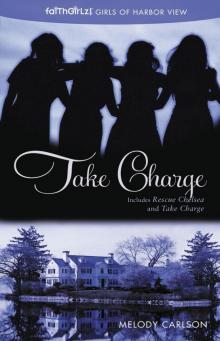 Take Charge
Take Charge Road Trip
Road Trip A Simple Song
A Simple Song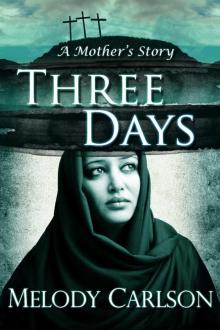 Three Days: A Mother's Story
Three Days: A Mother's Story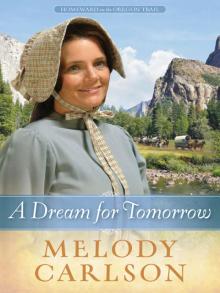 A Dream for Tomorrow
A Dream for Tomorrow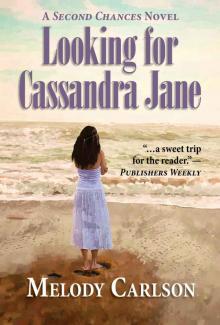 Looking for Cassandra Jane (The Second Chances Novels)
Looking for Cassandra Jane (The Second Chances Novels)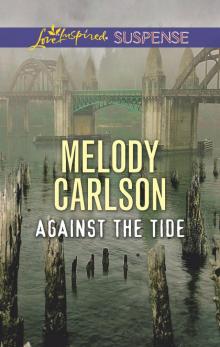 Against the Tide
Against the Tide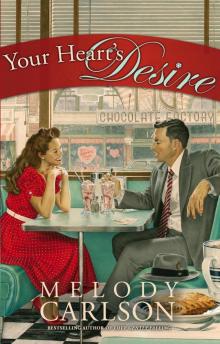 Your Heart's Desire
Your Heart's Desire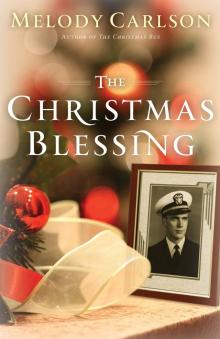 The Christmas Blessing
The Christmas Blessing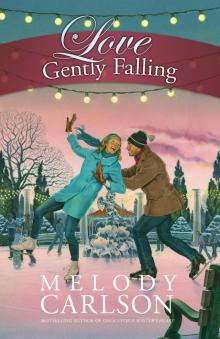 Love Gently Falling
Love Gently Falling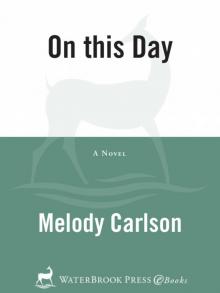 On This Day
On This Day The Christmas Joy Ride
The Christmas Joy Ride Ciao
Ciao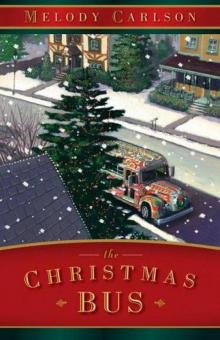 The Christmas Bus
The Christmas Bus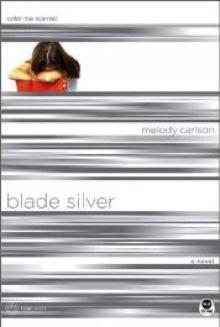 Blade Silver: Color Me Scarred
Blade Silver: Color Me Scarred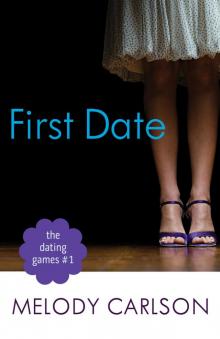 Dating Games #1
Dating Games #1 Double Take
Double Take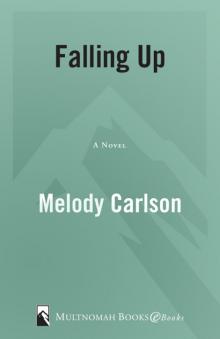 Falling Up
Falling Up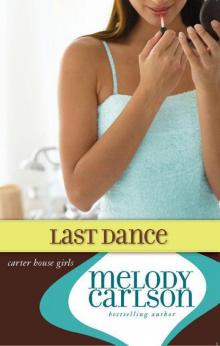 Last Dance
Last Dance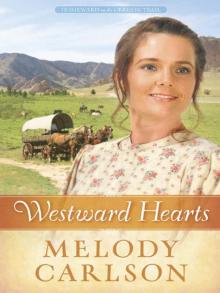 Westward Hearts
Westward Hearts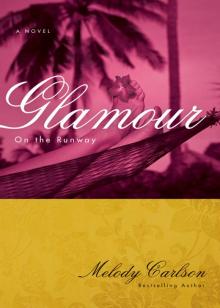 Glamour
Glamour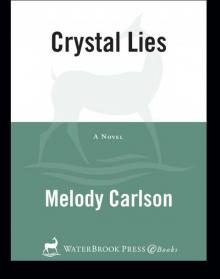 Crystal Lies
Crystal Lies The Best Friend
The Best Friend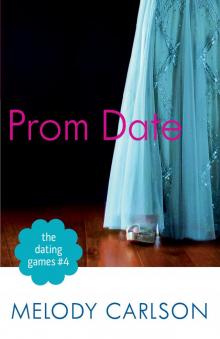 Prom Date
Prom Date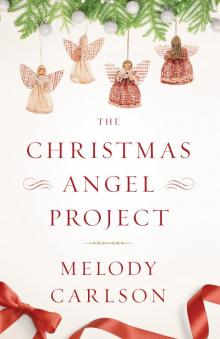 The Christmas Angel Project
The Christmas Angel Project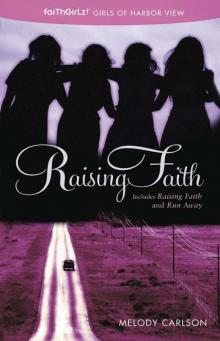 Raising Faith
Raising Faith The 'Naturals: Awakening (Episodes 1-4 -- Season 1) (The 'Naturals: Awakening Season One Boxset)
The 'Naturals: Awakening (Episodes 1-4 -- Season 1) (The 'Naturals: Awakening Season One Boxset)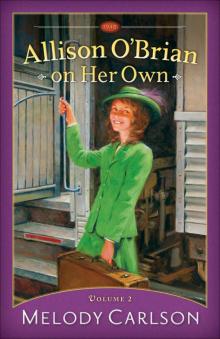 Allison O'Brian on Her Own, Volume 2
Allison O'Brian on Her Own, Volume 2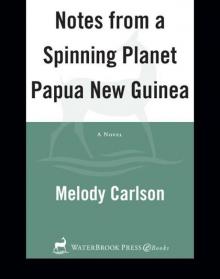 Notes from a Spinning Planet—Papua New Guinea
Notes from a Spinning Planet—Papua New Guinea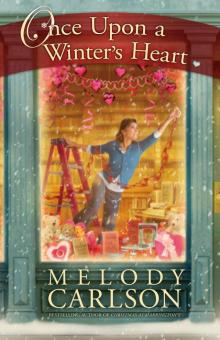 Once Upon a Winter's Heart
Once Upon a Winter's Heart Damaged
Damaged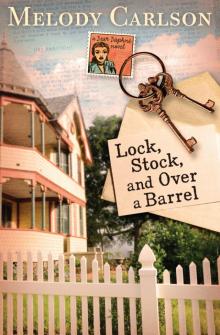 Lock, Stock, and Over a Barrel
Lock, Stock, and Over a Barrel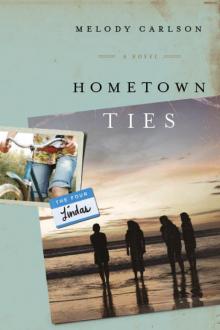 Hometown Ties
Hometown Ties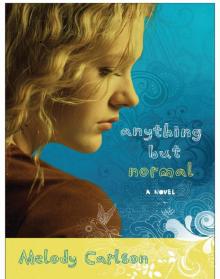 Anything but Normal
Anything but Normal Jerk Magnet, The (Life at Kingston High Book #1)
Jerk Magnet, The (Life at Kingston High Book #1) Damaged: A Violated Trust (Secrets)
Damaged: A Violated Trust (Secrets) Fool's Gold
Fool's Gold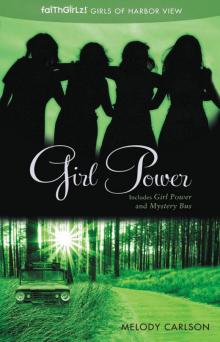 Girl Power
Girl Power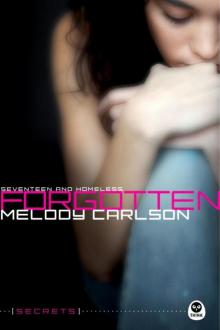 Forgotten: Seventeen and Homeless
Forgotten: Seventeen and Homeless Trading Secrets
Trading Secrets Blood Sisters
Blood Sisters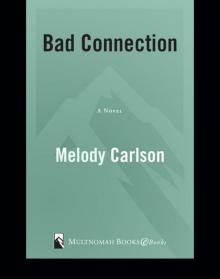 Bad Connection
Bad Connection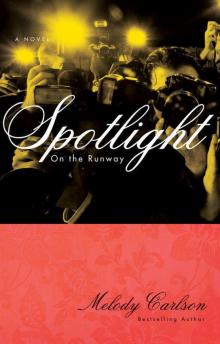 Spotlight
Spotlight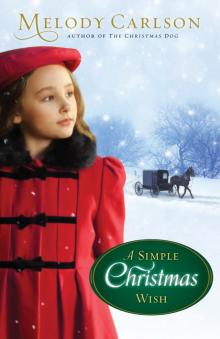 A Simple Christmas Wish
A Simple Christmas Wish Love Finds You in Martha's Vineyard
Love Finds You in Martha's Vineyard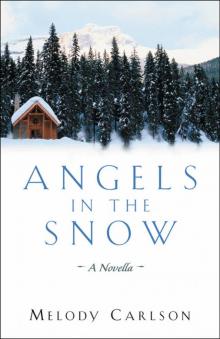 Angels in the Snow
Angels in the Snow A Christmas by the Sea
A Christmas by the Sea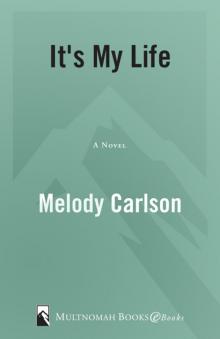 It's My Life
It's My Life Mixed Bags
Mixed Bags The Christmas Dog
The Christmas Dog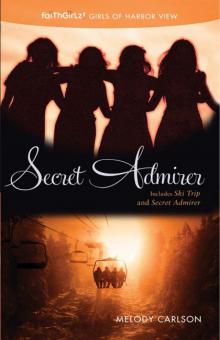 Secret Admirer
Secret Admirer Love Finds You in Pendleton, Oregon
Love Finds You in Pendleton, Oregon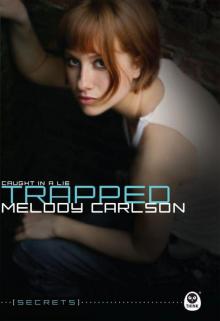 Trapped: Caught in a Lie (Secrets)
Trapped: Caught in a Lie (Secrets) The Gift of Christmas Present
The Gift of Christmas Present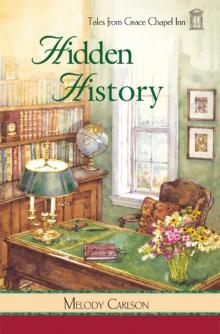 Hidden History
Hidden History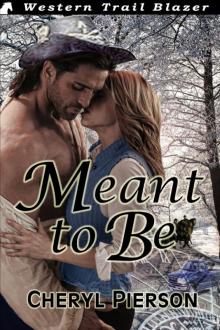 Meant to Be
Meant to Be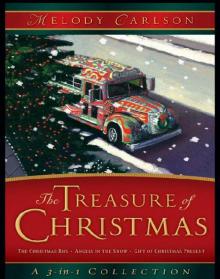 The Treasure of Christmas
The Treasure of Christmas Just Another Girl
Just Another Girl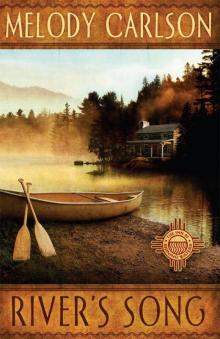 River's Song - The Inn at Shining Waters Series
River's Song - The Inn at Shining Waters Series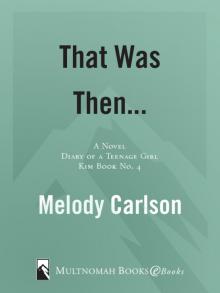 That Was Then...
That Was Then...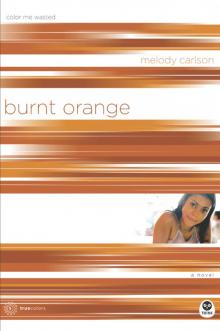 Burnt Orange
Burnt Orange Spring Breakdown
Spring Breakdown The Christmas Cat
The Christmas Cat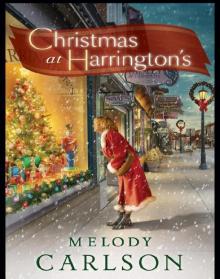 Christmas at Harrington's
Christmas at Harrington's